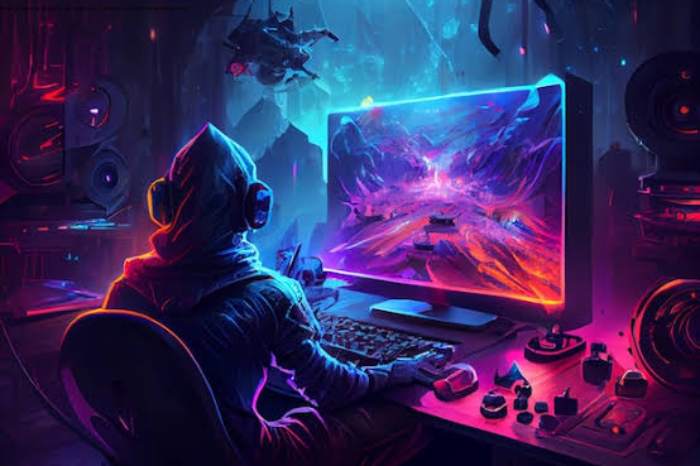It is now clear that the media and entertainment industries have undergone a significant transformation in recent years. There is a logical response to this. And I think we can all agree that developing technology has been primarily responsible for this transition. let we will know more about media industry.
Platforms have already started to evolve rapidly, issuing new updates yearly. This is extremely clear in media and entertainment, where streaming services are concerned and where viewers may get a lot out of a straightforward route.
Even though things are changing quickly, one thing is sure: the entertainment industry is headed in the right direction. The current trends show that they will continue to develop and transform into media game-changers.
Table of Contents
Artificial Intelligence’s Role in Media Entertainment
Artificial intelligence (AI) is rapidly encroaching on virtually every platform. AI technology will continue to take over in the home, office, and even video games in the near future.
Artificial intelligence is transforming the production and consumption of content in the media and entertainment sector. Currently, AI is reaching a point where it can help create movies, commercials, and television shows while also providing those media to viewers.
When someone uses a service like Netflix or TiVo, AI will learn and remember their preferences and then suggest media they enjoy.
Currently, this takes the shape of movies and television shows. But, based on an analysis of prior search engine inquiries, it will probably include recommendations for music and live performances.
Virtual Reality
Virtual reality is only recently being used in the media and entertainment sector. On the job it has already accomplished, it still has a significant impact. Currently, gaming is where the technology is most prevalent—using the ease of an eye mask to create augmented realities that its users can completely immerse themselves in.
These alternate universes are striving hard to draw in customers and generate revenue. It is unquestionably working at this pace.
With the future of VR, viewers can expect to see films becoming significantly more interactive, allowing the audience to see more film-related information. The advancement of “Real World-Sound Headphones” for music is predicted to continue. These gadgets provide a complete improvement over the listening experience that is already offered. In virtual reality, the technology is more typically called “selective audio modification technology”. It is most frequently employed at schools welcoming students with autism. This is because it enables students to express themselves through a different mode of communication entirely.
The video game business won’t suffer from virtual reality. That much is certain. Instead, it will develop along with the power of technology, producing better games and workstations that provide the viewer with a scene that is even more realistic. Given the current state of affairs, virtual reality will become more and more important in the future.
Blockchain
Blockchain is an additional component that can significantly improve and transform the media and entertainment industry. This format is proposed to represent a new method for storing data at a level where a component can be wholly encrypted into a system and cannot be changed, removed, or replaced. Only a trustworthy consensus reached by all devices involved to convert this data into a blockchain will allow it to go to this point.
The prevalence of creators being monetarily defrauded by distributors and labels is one of these industries’ main problems. Yet, blockchain technology can eventually resolve this problem, leaving no evidence that it ever existed.
This is due to Blockchain’s potential to cut out the intermediaries. As the consensus will only need to be accepted by two people to be locked down, this will ensure the security of all papers.
Future updates to Blockchain technology will undoubtedly improve media industry security. It enables businesses to provide top-notch entertainment. It increases potential production because it can never be altered, copied, or removed.
5G Wireless Networking
Even before it hits the market, the next generation of mobile networking is already filled with enormous promise—especially its impact on the media and entertainment sector.
Research has been done on 5G’s impressive capabilities. Intel has announced that by 2028, 5G is expected to generate $1.3 trillion in income for the media and entertainment sector, even if it is not ready for mobile use yet.
All forms of media and entertainment are said to undergo a radical transformation due to 5G. They enable users to obtain features in seconds rather than minutes. With the help of VR and AI (powered by 5G), creating films and media will be nearly entirely automated, drastically reducing the time that must be spent on the task.
The development of technology will result in an unparalleled entertainment experience. Each feature attracts consumers by becoming more immersive and interactive, encouraging technology to advance.
Streaming Services
After rising to prominence, streaming services are one of the largest platforms in the media today. These online platforms allow subscribers to watch any movies and TV shows they want, whenever they want, from any location.
Publish with Us For individuals writing guest posts in the technology category, the phrase “technology category” may be a trademark. So get ready to send blogs to the official Grass Desk website.
Also read: Google Hack
Also read: Programmable SMS Technology
- What are Sitewide Backlinks & Their Impact on Search Engine Ranking - May 22, 2024
- 10 Tips For How To Use Craigslist to Buy - May 5, 2024
- Best 5 ways to how to get play store back on my smartphone? - May 3, 2024



